Struggling to fall asleep quickly can be frustrating, especially when you have a busy day ahead. Mastering the art of falling asleep fast can make a huge difference in your overall well-being. To fall asleep fast, try techniques like deep breathing exercises and progressive muscle relaxation. By adopting these methods, you can calm your mind and prepare your body for rest.

What to do before bed to sleep better:
Watch the video NOW!
One effective way to help you fall asleep quickly is to practice deep breathing. This involves inhaling through your nose for a count of four, holding the breath for seven seconds, and then exhaling through your mouth for eight seconds. This technique can help slow your heart rate and relax your body, making it easier to drift off.
Creating an optimal sleep environment and establishing a soothing bedtime routine are also key components. Keeping your bedroom cool, dark, and quiet can significantly improve your chances of falling asleep fast. Pair these environmental changes with a relaxing pre-sleep routine, like reading or taking a warm bath, to signal to your body that it’s time to wind down.
Key Takeaways
- Deep breathing exercises can help you relax and fall asleep faster.
- Creating a calm sleep environment is crucial for good sleep.
- A consistent bedtime routine prepares your body and mind for rest.
Understanding Sleep
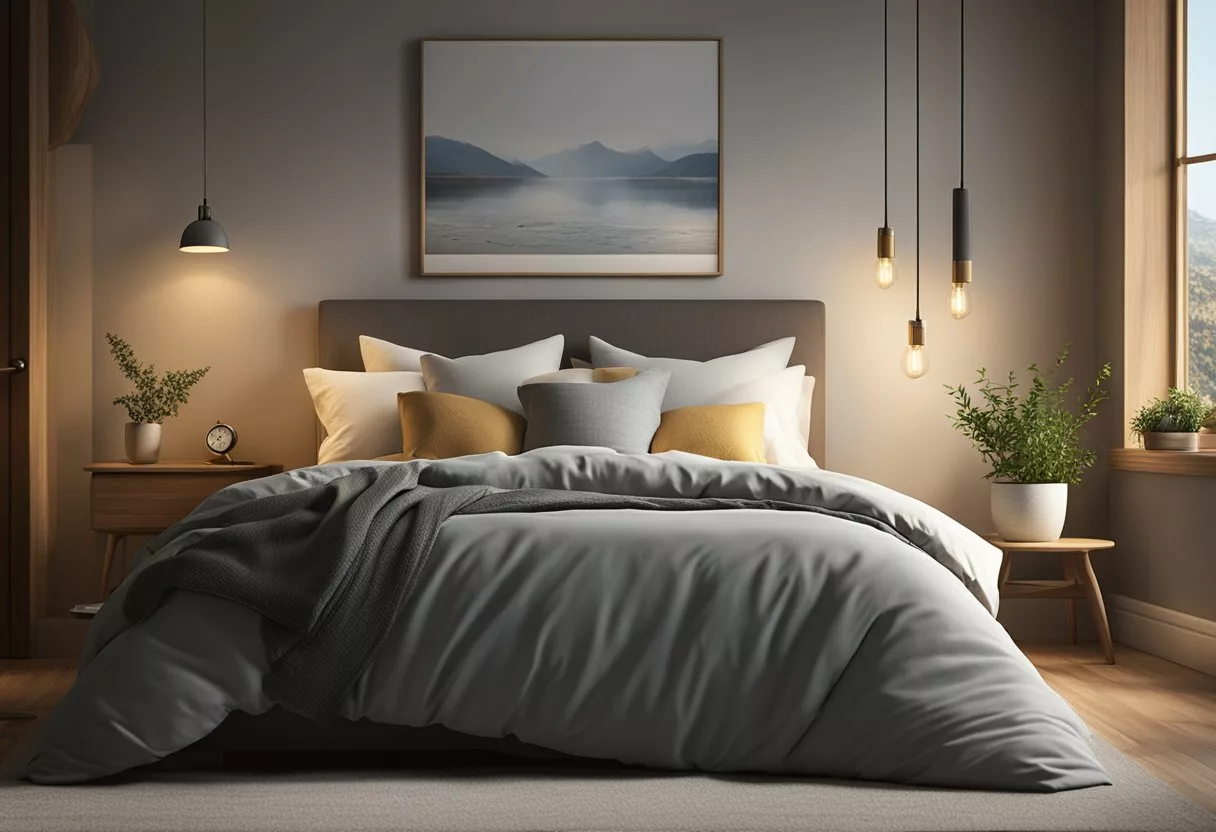
Sleep affects many aspects of health and well-being. It involves complex processes within the brain and body, coordinated by various systems and impacted by multiple factors.
The Science of Sleep
Sleep is regulated by the circadian rhythm, the body’s internal clock, aligning with the 24-hour day-night cycle. This rhythm influences sleep-wake patterns and is driven by light exposure. Adenosine, a chemical that builds up during wakefulness, plays a crucial role in promoting sleepiness.
The parasympathetic nervous system helps the body relax and conserve energy, supporting restful sleep. In contrast, the sympathetic nervous system is more active during wakefulness and stress, hindering sleep. Various stages of sleep, including non-REM and REM sleep, are essential for different functions like memory consolidation and physical recovery.
Sleep Disorders and Their Impact
Sleep disorders, such as insomnia, significantly affect daily life by causing daytime impairment. Insomnia makes it hard to fall or stay asleep, often leading to chronic fatigue. Other disorders include sleep apnea, restless leg syndrome, and narcolepsy, each disrupting sleep quality and duration.
Being sleep-deprived affects cognitive performance, mood, and overall health, increasing risks for conditions like cardiovascular diseases. Effective management of sleep disorders is crucial for maintaining well-being, and may involve lifestyle changes, medical treatment, or therapy. Understanding the root causes and symptoms helps target the right interventions, enhancing sleep and reducing its negative impacts on daily life.
Preparing the Body and Mind

To fall asleep quickly, it’s important to prepare both your body and mind. This includes using relaxation techniques, engaging in regular physical activity, and paying attention to your diet and nutrition.
Relaxation Techniques
Relaxation techniques can significantly improve sleep quality. Practices like mindfulness meditation and guided imagery help reduce stress and calm the mind before bedtime. One effective method is progressive muscle relaxation, where you systematically tense and then relax different muscle groups. Yoga and deep breathing exercises like the 4-7-8 breathing method, where you inhale for 4 seconds, hold for 7, and exhale for 8, can also promote relaxation.
Exercise and Physical Activity
Regular exercise helps regulate sleep patterns. Engaging in physical activity during the day can make it easier to fall asleep at night. Gentle activities such as yoga and stretches can relax the body and mind. While vigorous exercise is beneficial, it’s ideal to avoid it close to bedtime. Instead, opt for lighter activities that promote relaxation.
Diet and Nutrition
Eating habits play a crucial role in sleep quality. It’s advisable to avoid caffeine and alcohol in the hours before bed as they can interfere with sleep. Consuming heavy or spicy foods late at night can also disrupt sleep. Instead, try light snacks like chamomile tea or a piece of fruit if you’re hungry before bed. It’s important to maintain balance, not going to bed either hungry or overly full.
Creating an Optimal Sleep Environment
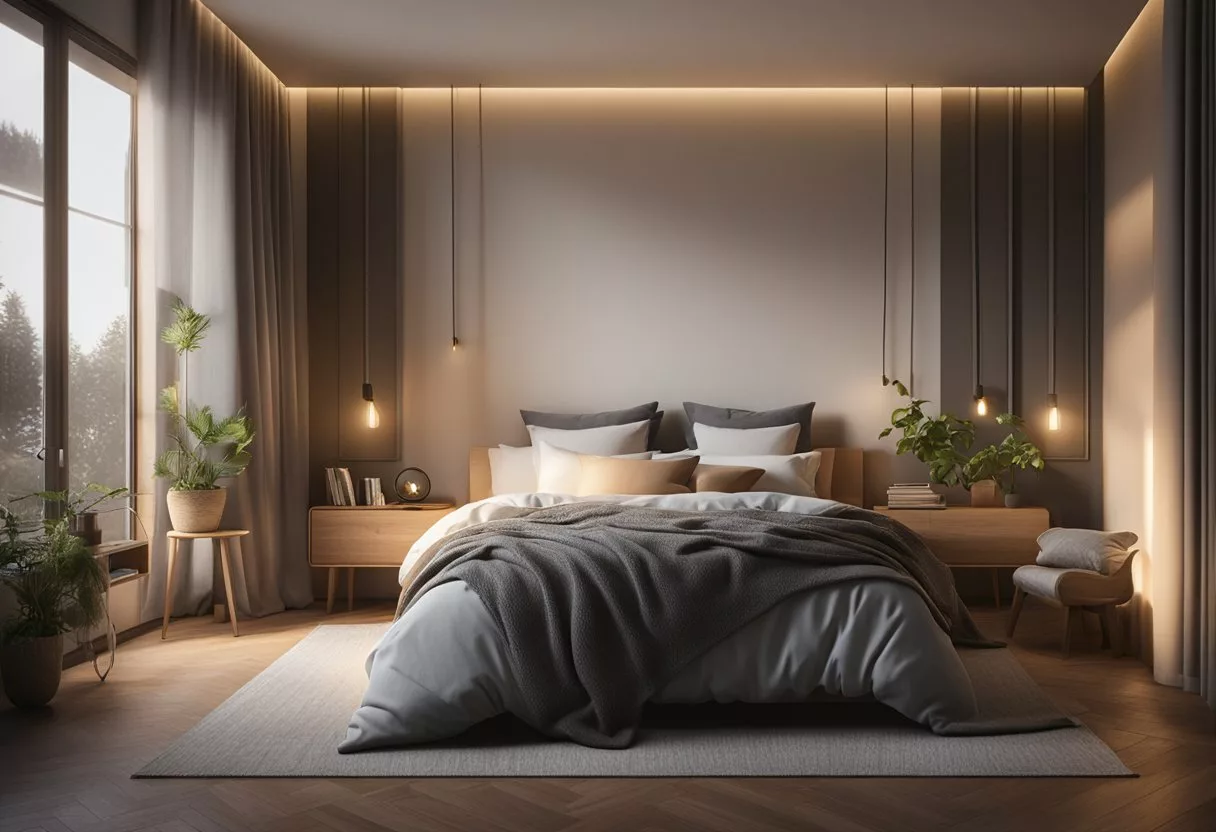
Creating the ideal sleep environment involves controlling light, sound, and scents. These elements can make a significant difference in the quality of sleep.
The Role of Light
Light plays a crucial role in regulating sleep cycles. Exposure to bright light in the evening, especially blue light from screens, can prevent the production of melatonin, the sleep hormone. To foster better sleep, it’s best to keep the bedroom dark. Use blackout curtains to block out streetlights and other outdoor light sources.
Dimming the lights an hour before bed can help signal to the body that it’s time to wind down. Some people also benefit from using sleep masks, which can be especially useful in inconsistent lighting environments. Overall, reducing exposure to light in the evening can help prepare the body for sleep.
Soundscapes for Sleeping
Sound can significantly impact sleep quality. White noise machines and fans can mask disruptive background noises, making it easier to fall asleep. Many find that white noise or pink noise—a variation of white noise—can create a soothing background that helps them relax.
Using nature sounds, such as ocean waves or rain, can also be very calming. Relaxing music and calm music are other popular options. Noise-blocking curtains can add an extra layer of soundproofing to your bedroom, further enhancing the sleep environment. Consistent, low-level sound can prevent sudden noises from waking you up, promoting a deeper and more restful sleep.
Aromatherapy and Scents
Aromatherapy can be a beneficial addition to your bedtime routine. Scents like lavender have been shown to promote relaxation and improve sleep quality. Essential oils can be diffused in the bedroom or added to a bedtime bath.
Spraying lavender mist on pillows and bedsheets is another effective method. Other calming scents include chamomile and sandalwood. When using aromatic aids, it is essential to choose high-quality, natural oils to avoid unwanted chemicals. Incorporating aromatherapy into the sleep environment can create a more soothing and comfortable atmosphere, enhancing overall sleep quality.
Developing a Sleep Routine

Establishing a nightly routine can signal the brain that it’s time to wind down, which can help you fall asleep faster and sleep better. Here are essential steps to build a consistent and effective bedtime routine.
Building a Bedtime Routine
Creating a structured bedtime routine is key to improving sleep quality.
- Set a Fixed Bedtime: Go to bed and wake up at the same time every day, including weekends. This helps regulate the body’s internal clock.
- Limit Screen Time: Avoid phones, tablets, and computers at least an hour before bed. The blue light emitted can interfere with melatonin production, making it hard to fall asleep.
- Relaxing Activities: Include calming activities like taking a warm bath, reading a book, or journaling. These can help reduce stress and prepare your mind for sleep.
- Create a Comfortable Sleep Environment: Ensure your bedroom is quiet, dark, and cool. Consider using blackout curtains, earplugs, or a white noise machine if needed.
Incorporating these steps into your night routine can greatly enhance your ability to fall asleep quickly and enjoy a restful night.
Behavioral and Psychological Strategies
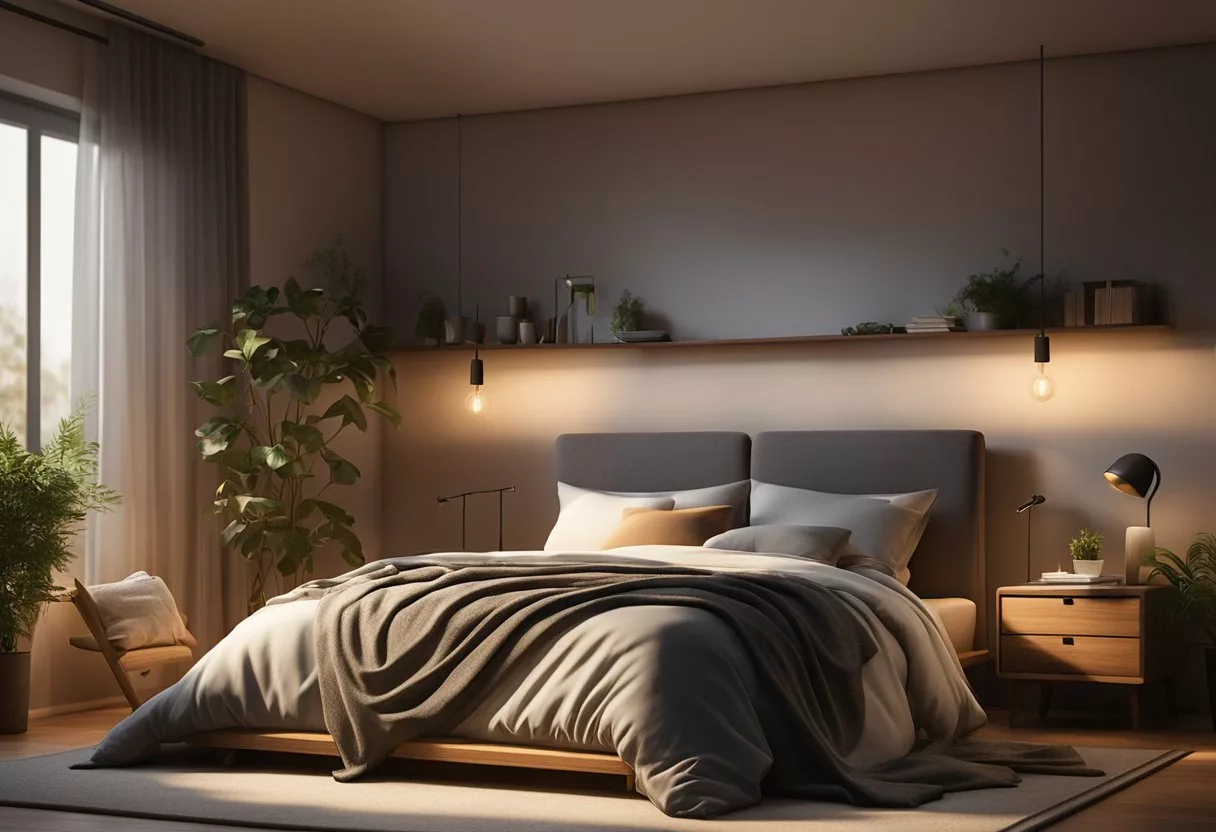
To fall asleep faster, various behavioral and psychological strategies can be very effective. These methods often involve changing thought patterns and introducing calming routines.
Cognitive Techniques
Cognitive Behavioral Therapy for Insomnia (CBT-I) targets the thoughts and behaviors that prevent sleep. It helps people identify and change negative thinking patterns. For example, someone might worry about not falling asleep, which makes it harder for them to relax.
Using paradoxical intention, a therapist might ask a patient to stay awake as long as they can. This can reduce performance anxiety around falling asleep. Incorporating relaxation methods like deep breathing and progressive muscle relaxation also eases tension and reduces stress and anxiety.
Routine practices known as sleep hygiene include keeping a regular sleep schedule, avoiding caffeine before bed, and creating a comfortable sleep environment. These habits can form a foundation for successful cognitive techniques.
The Military Method and Other Tactics
The military method is a practice developed by the U.S. military to help soldiers fall asleep quickly. It involves relaxing the entire body, starting with the face, then moving to the shoulders, arms, and legs. Visualization techniques, like imagining a calming scene, support this process.
Other effective tactics include using imagery rehearsal therapy for those with nightmares. This method helps reframe and reduce the impact of nightmares. Techniques like listening to soothing music, engaging in gentle stretching, and practicing yoga can create a peaceful bedtime routine.
Incorporating cognitive and behavioral strategies, like those mentioned, can significantly improve sleep quality and reduce the time it takes to fall asleep.
Natural Sleep Aids and Supplements
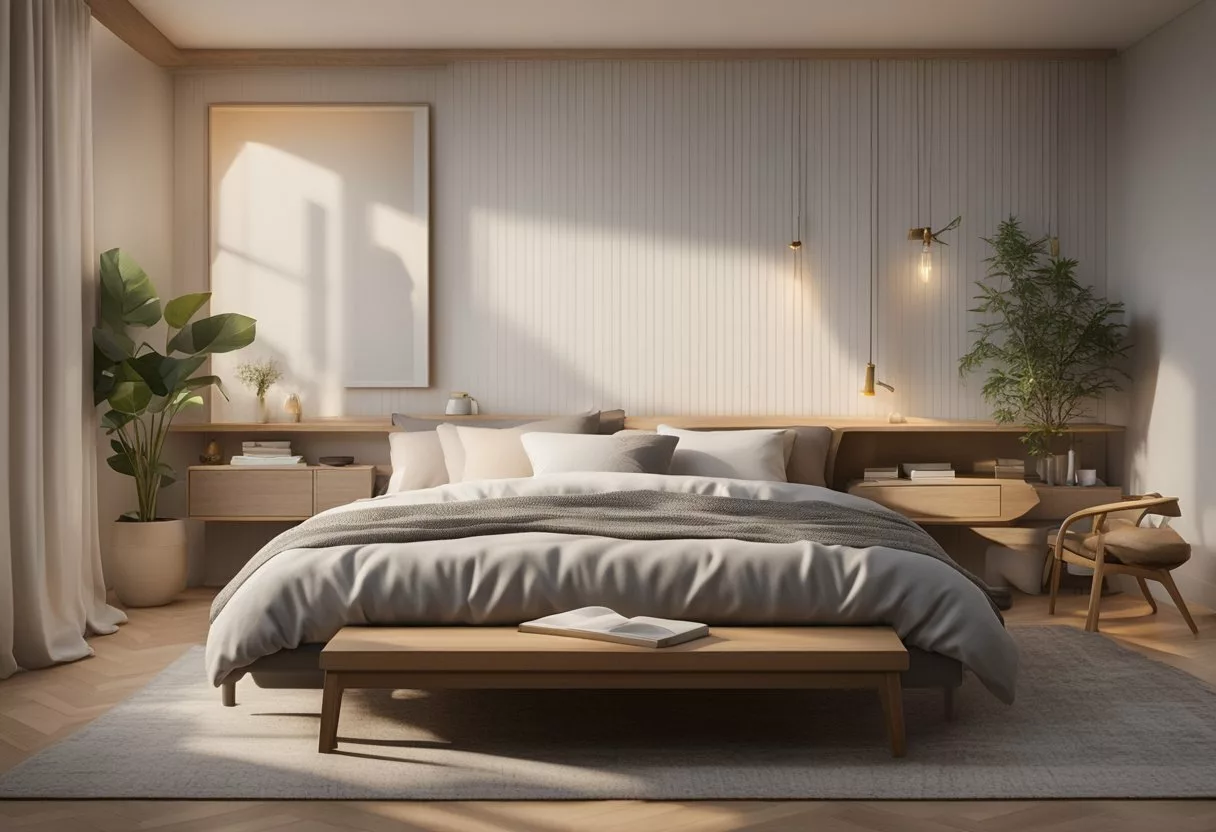
Different natural methods can help improve sleep quality. These include certain herbal remedies and tools like weighted blankets, which create an optimal sleep environment and act as a natural tranquilizer.
Herbal Infusions and Supplements
Herbal remedies are a popular choice for sleep. Melatonin is a hormone your body makes, but it can also be taken as a supplement to regulate sleep cycles. It’s especially useful for people with disrupted sleep patterns.
Chamomile tea is another option. It has calming properties that help people relax before bed. Many find that drinking it an hour before bed makes falling asleep easier.
Valerian root and lavender are other common choices. Valerian root is a natural tranquilizer, while lavender is known for promoting relaxation and reducing anxiety.
Weighted Blankets and Other Tools
Weighted blankets help create an optimal sleep environment by providing gentle pressure on the body. This pressure mimics a hugging sensation and helps reduce anxiety.
Using tools like eye masks and earplugs can block out light and noise, contributing to better sleep quality.
Creating a consistent sleep routine, with a set bedtime and wake time, also aids in sleep. Cooling pillows and mattress toppers can enhance comfort, ensuring a restful night.
By combining these tools and supplements, it’s possible to improve sleep duration and quality naturally.
Lifestyle Considerations

Lifestyle choices significantly affect one’s ability to fall asleep quickly. Key areas to focus on include the impact of electronic devices and the effects of substance consumption.
Influence of Electronic Devices
Using electronic devices before bedtime can interfere with sleep quality. Screens from smartphones, tablets, and computers emit blue light, which can suppress the production of melatonin, the hormone that regulates sleep. This makes it harder to fall asleep.
Texting or browsing social media on a cell phone keeps the brain active, delaying sleep. It’s advisable to stop using devices at least one hour before bedtime to allow the brain to wind down. Reading a book or listening to soothing music is a better alternative.
To minimize interference, consider using apps that reduce blue light or wear glasses designed to block it. These adjustments can help prepare the body for a good night’s rest.
The Effect of Substance Consumption
Substances like caffeine, alcohol, and nicotine can impact sleep patterns. Caffeine is a stimulant found in coffee, tea, and some sodas. Consuming it late in the day can prevent the body from relaxing, making it difficult to fall asleep.
Alcohol consumption might initially make you feel drowsy, but it can disrupt the sleep cycle, causing fragmented sleep. This often leads to waking up during the night and feeling tired the next day.
Nicotine, found in cigarettes and some vapes, is also a stimulant. Smoking close to bedtime can increase heart rate and alertness. It’s best to avoid these substances for several hours before going to bed to improve the chances of falling asleep quickly and enjoying restful sleep.
Frequently Asked Questions
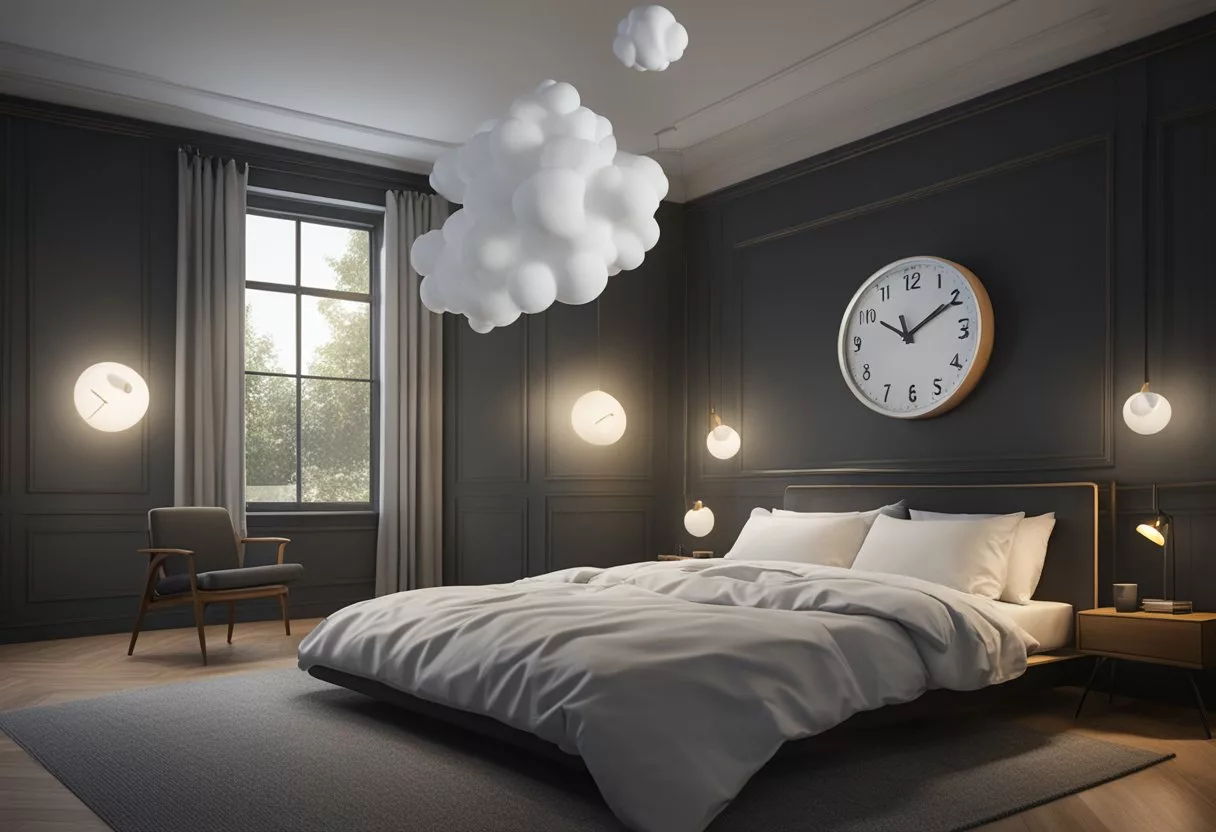
Learn about different techniques and methods to fall asleep quickly. This section covers tips for adults and those struggling with insomnia, as well as ways to fall asleep in under five minutes.
What techniques can help me fall asleep quickly?
Progressive muscle relaxation can be very effective. Tensing each muscle group for 10 seconds, then relaxing, helps to release tension in the body. The 4-7-8 breathing method is also popular, involving a sequence of inhaling, holding, and exhaling.
Are there methods to fall asleep in under five minutes?
Yes, the military method involves relaxing your entire body and visualizing a calm scene. Another method is deep breathing exercises that can calm the nervous system, such as the whooshing breath technique.
How can adults fall asleep faster?
Adults can benefit from a regular sleep schedule and creating a relaxing bedtime routine. Limiting screen time before bed and ensuring a comfortable sleeping environment are also key factors. Techniques like muscle relaxation help reduce physical tension.
What are some effective strategies to fall asleep when struggling with insomnia?
For those with insomnia, it’s helpful to maintain a consistent bedtime and limit naps during the day. Avoiding caffeine and heavy meals before bed is crucial. Relaxation exercises, such as deep breathing and visualization, can also be beneficial.
Is it possible to train oneself to fall asleep in less than a minute?
Training yourself to fall asleep in less than a minute is challenging but not impossible. Techniques like the 4-7-8 breathing method can help. Consistency and practice are essential, along with minimizing distractions and creating a sleep-friendly environment.
What is the fastest way to fall asleep when feeling restless?
When feeling restless, focusing on breath work, like the whooshing breath technique, can help. Relaxing each muscle group and ensuring your bedroom is cool, quiet, and dark can create an optimal environment for sleep.